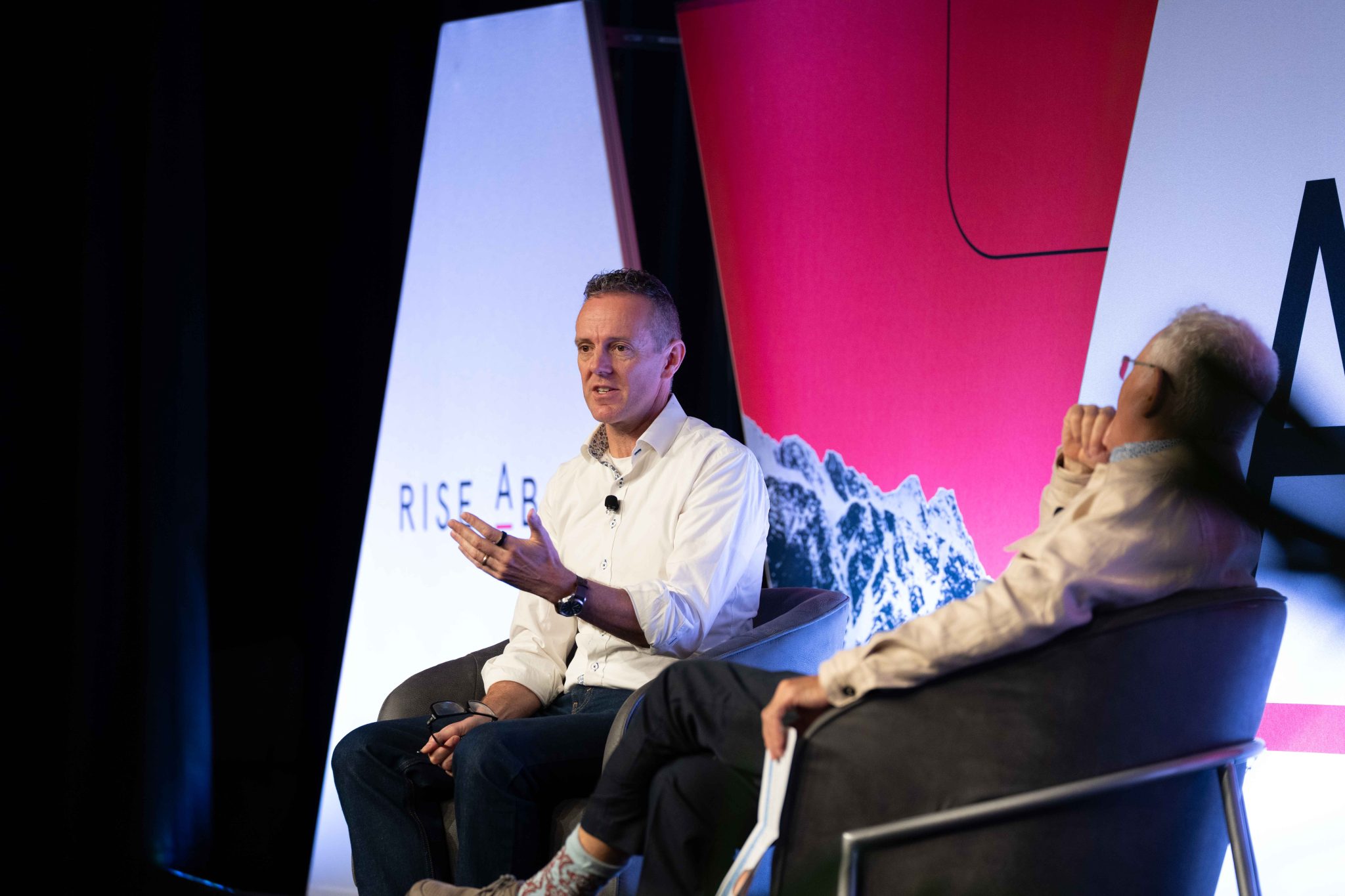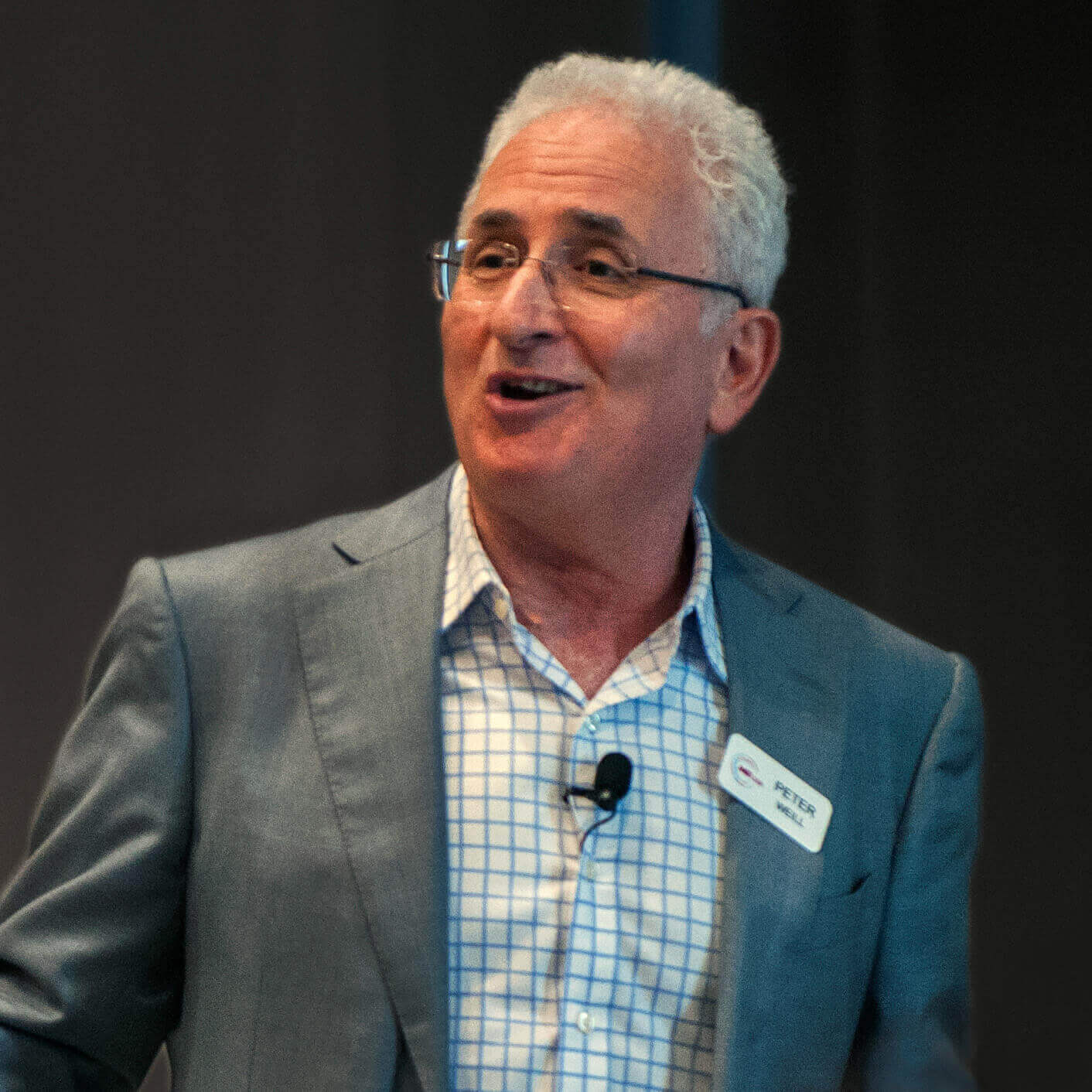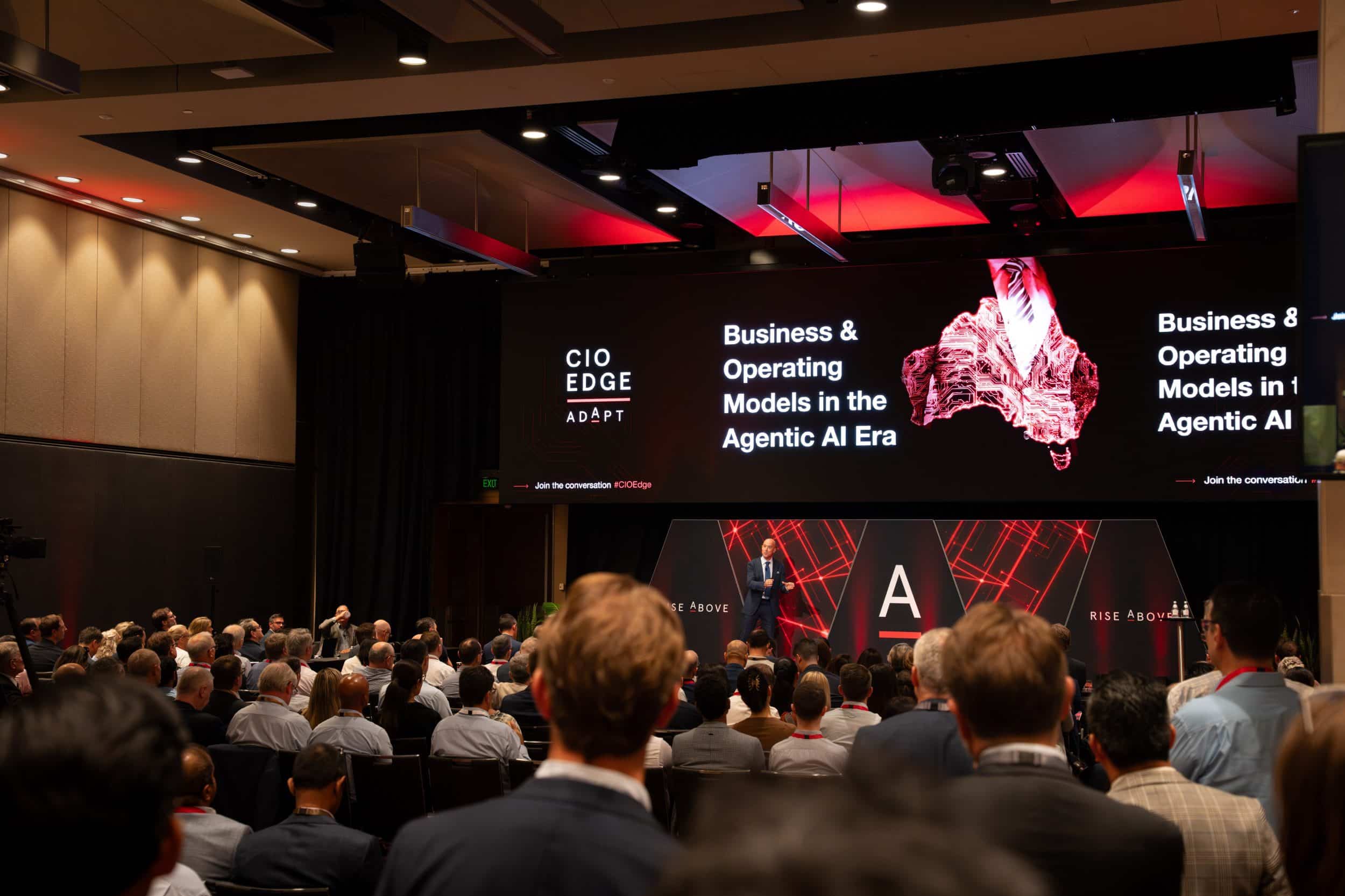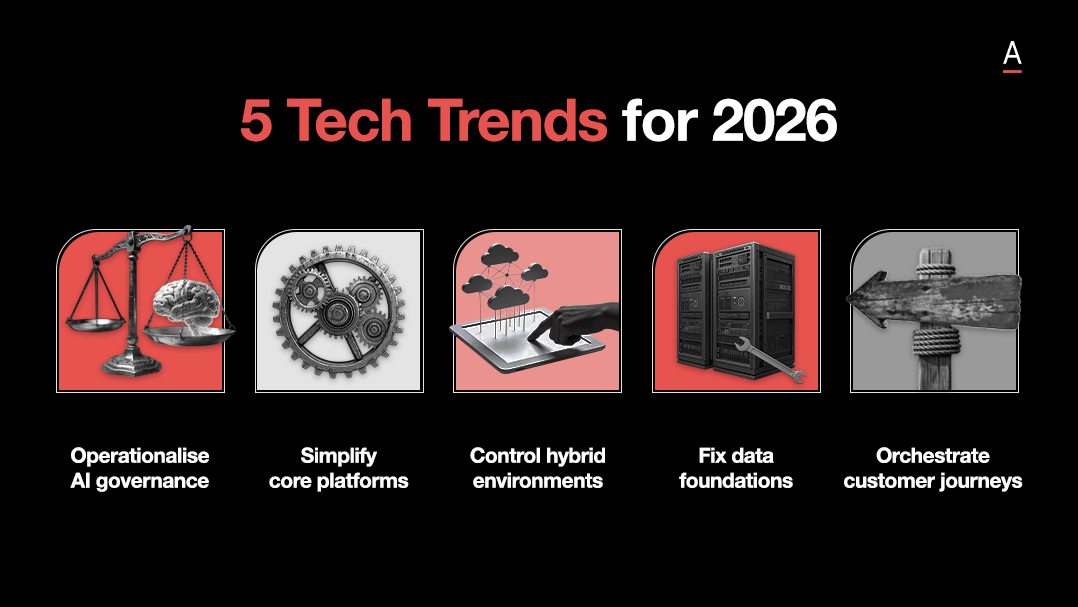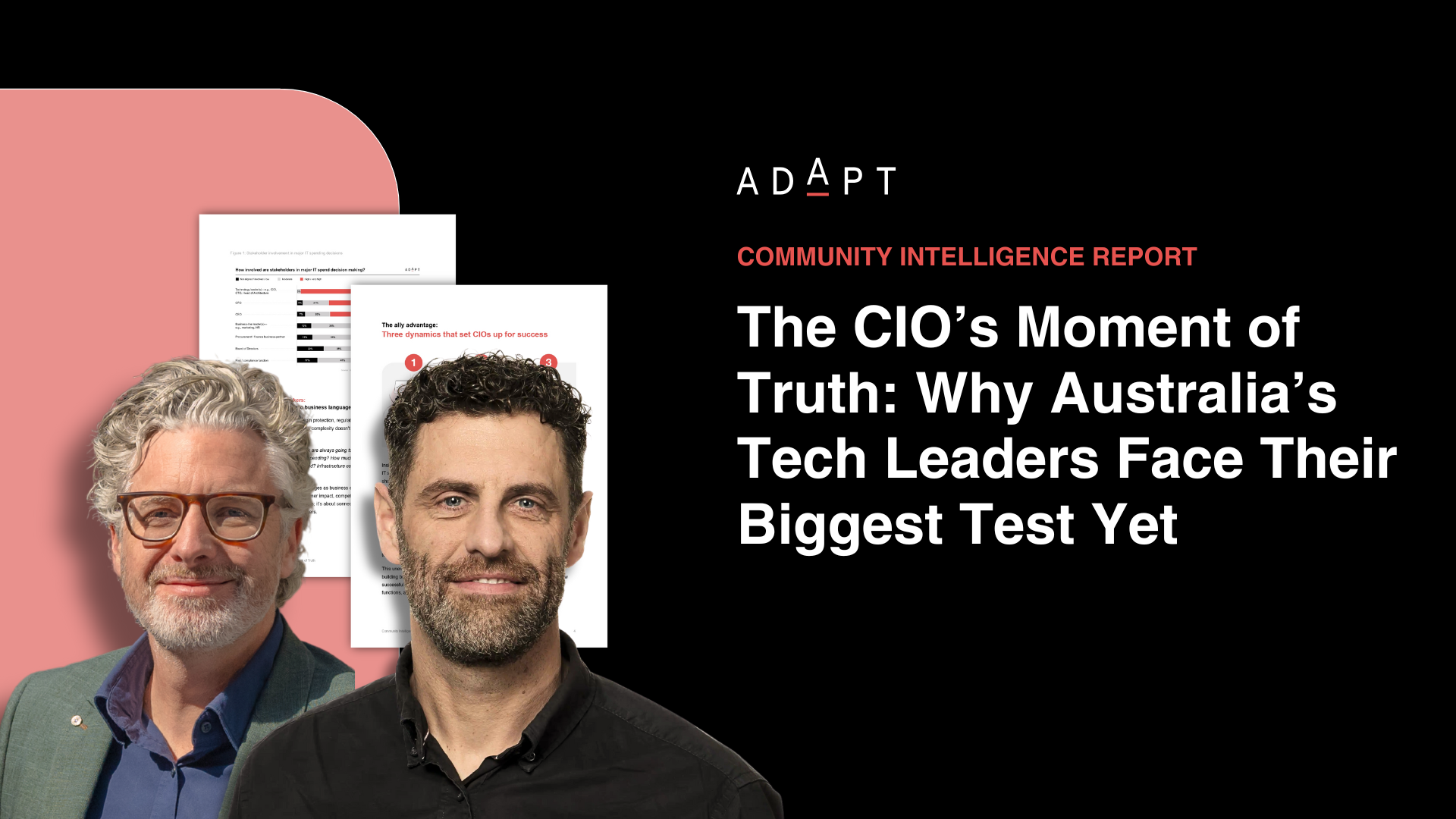Coles Group former CTO John Cox shares lessons learnt from their transformation journey, highlighting how adaptive intelligence (AQ) was key to resilience and success at CIO Edge.
In a conversation with Dr Peter Weill, Chairman of MIT CISR and ADAPT Advisor, he emphasises that an organisation’s success depends on how effectively its teams adapt to change.
Drawing from his extensive experience across high-pressure environments—ranging from TV journalism to humanitarian work and lobbying—he explains that while IQ secures opportunities and EQ fosters collaboration, AQ enables leaders to navigate volatility and make proactive, informed decisions.
By cultivating trust within teams, businesses can accelerate transformation and remain agile in an ever-evolving landscape.
ADAPT’s research reinforces this perspective, particularly in the context of AI adoption.
As organisations integrate AI-driven automation to enhance efficiency, leaders must also recognise the human element of adaptability.
AI models are evolving rapidly, and businesses should prioritise hot-swappable AI frameworks that offer flexibility while ensuring compliance with ethical and regulatory standards.
Just as autonomous endpoint management is revolutionising IT operations by reducing burnout and optimising security, adaptive intelligence in leadership allows teams to anticipate and shape change rather than merely react to it.
John illustrates the importance of an adaptive mindset through real-world examples spanning crisis management and business strategy.
He argues that organisations must shift from a reactive stance to a proactive approach, identifying early signals of change to build resilience.
Whether responding to market shifts, security threats, or emerging AI trends, the key to long-term success lies in fostering a culture of adaptability.
The takeaway for businesses is clear: embracing both AI-driven efficiencies and human adaptability will be essential for navigating the future.
Key takeaways:
- Adaptive intelligence (AQ) is key to leadership – While IQ and EQ are important, AQ—the ability to anticipate and shape change—is what enables leaders to navigate volatility and drive transformation effectively. Building trust within teams strengthens their ability to adapt and execute strategy.
- AI and adaptability must work together – ADAPT’s research highlights the rapid evolution of AI models and the need for flexible, hot-swappable AI frameworks. Just as AI-driven automation is reducing IT burnout and optimising security, businesses must also develop human adaptability to keep pace with technological shifts.
- Proactive change management is essential – Organisations must move from a reactive to a proactive mindset, identifying early signals of change to build resilience. Whether responding to market shifts, security threats, or AI adoption, businesses that foster a culture of adaptability will be best positioned for long-term success.





















